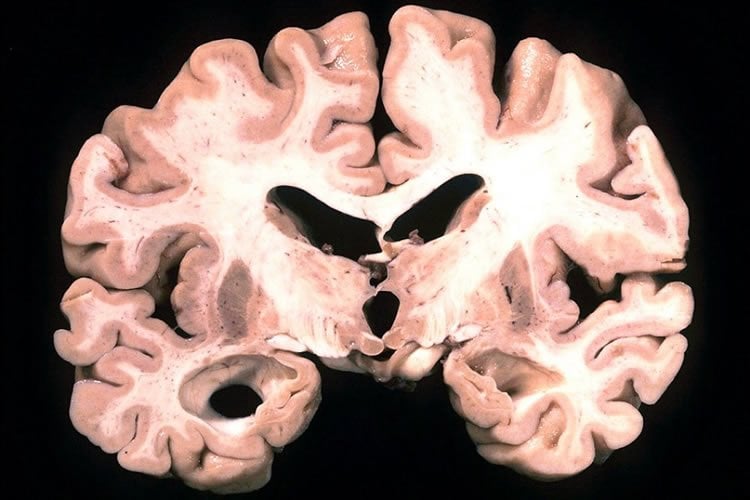Better blood sugar control can help prevent decline in mental ability.
People who have diabetes and experience high rates of complications are more likely to develop dementia as they age than people who have fewer diabetic complications, according to a new study published in the Endocrine Society’s Journal of Clinical Endocrinology & Metabolism.
An individual develops diabetes when the pancreas doesn’t produce enough of the hormone insulin or the body can’t use insulin properly to process sugar. When blood sugar levels remain high due to uncontrolled diabetes, serious complications can develop, including blindness, kidney failure and decreased blood flow in limbs that can lead to amputation.
More than 29 million Americans have diabetes, according to the Society’s Endocrine Facts and Figures Report. Among every 100 Americans diagnosed with the condition, 21 have nerve damage, 27 have diabetic kidney disease, and between 29 and 33 have diabetic eye disease that can cloud vision.
“Our research is the first nationwide study to examine how the severity and progression of diabetes is related to dementia diagnosis rates in an older population,” said one of the study’s authors, Wei-Che Chiu, MD, PhD, of the National Taiwan University College of Public Health, Cathay General Hospital and Fu Jen Catholic University, all in Taipei, Taiwan. “We found that as diabetes progresses and an individual experiences more complications from the disease, the risk of dementia rises as well.”
The 12-year-long population-based cohort study used the Taiwan National Health Insurance Research Database’s records dating back to 1999 to identify 431,178 people who were older than 50 and newly diagnosed with diabetes. The researchers reviewed records to determine how many people in the cohort were admitted to a hospital or had at least three outpatient medical visits for dementia after they were diagnosed with diabetes. To evaluate the progression of each individual’s diabetes, the researchers used an adapted version of the Diabetes Complications Severity Index, a tool used to predict deaths and hospitalizations among people with diabetes.

Among the people in the cohort, 26,856 people, or 6.2 percent, were diagnosed with dementia. The risk of developing dementia was higher among people who had a high score on the Diabetes Complications Severity Index than for those who had a low score.
“The study demonstrates why it is so crucial for people with diabetes to work closely with health care providers on controlling their blood sugar,” Chiu said. “Managing the disease can help prevent the onset of dementia later in life.”
Other authors of the study include: Wen-Chao Ho and Meng-Hung Lin of China Medical University in Taichung, Taiwan; Ding-Lieh Liao of National Taiwan University College of Public Health and Bali Psychiatric Center in Taiwan; Chih-Chiang Chiu of Taipei City Hospital and Taipei Medical University in Taipei, Taiwan; Yu-Ping Su of Cathay General Hospital and Fu Jen Catholic University in Taipei, Taiwan; Pau-Chung Chen of National Taiwan University in Taipei, Taiwan; and the Health Data Analysis in Taiwan (hDATa) Research Group.
Source: Jenni Glenn Gingery – The Endocrine Society
Image Credit: Image is in the public domain
Original Research: Full open access research for “Progress of Diabetic Severity and Risk of Dementia” by Wei-Che Chiu, Wen-Chao Ho, Ding-Lieh Liao, Meng-Hung Lin, Chih-Chiang Chiu, Yu-Ping Su, and Pau-Chung Chen, Health Data Analysis in Taiwan (hDATa) Research Group in Journal of Clinical Endocrinology and Metabolism. Published online July 9 2015 doi:10.1210/jc.2015-1677
Abstract
Progress of Diabetic Severity and Risk of Dementia
Context: Diabetes is a risk factor for dementia, but the effects of diabetic severity on dementia are unclear.
Objective: The purpose of this study was to investigate the association between the severity and progress of diabetes and the risk of dementia.
Design and Setting: We conducted a 12-year population-based cohort study of new-onset diabetic patients from the Taiwan National Health Insurance Research Database. The diabetic severity was evaluated by the adapted Diabetes Complications Severity Index (aDCSI) from the prediabetic period to the end of follow-up. Cox proportional hazard regressions were used to calculate the hazard ratios (HRs) of the scores and change in the aDCSI.
Participants: Participants were 431,178 new-onset diabetic patients who were older than 50 years and had to receive antidiabetic medications.
Main Outcome: Dementia cases were identified by International Classification of Diseases, ninth revision, code (International Classification of Diseases, ninth revision, codes 290.0, 290.1, 290.2, 290.3, 290.4, 294.1, 331.0), and the date of the initial dementia diagnosis was used as the index date.
Results: The scores and change in the aDCSI were associated with the risk of dementia when adjusting for patient factors, comorbidity, antidiabetic drugs, and drug adherence. At the end of the follow-up, the risks for dementia were 1.04, 1.40, 1.54, and 1.70 (P < .001 for trend) in patients with an aDCSI score of 1, 2, 3, and greater than 3, respectively. Compared with the mildly progressive patients, the adjusted HRs increased as the aDCSI increased (2 y HRs: 1.30, 1.53, and 1.97; final HRs: 2.38, 6.95, and 24.0 with the change in the aDCSI score per year: 0.51–1.00, 1.01–2.00, and > 2.00 vs < 0.50 with P < .001 for trend). Conclusions: The diabetic severity and progression reflected the risk of dementia, and the early change in the aDCSI could predict the risk of dementia in new-onset diabetic patients.
“Progress of Diabetic Severity and Risk of Dementia” by Wei-Che Chiu, Wen-Chao Ho, Ding-Lieh Liao, Meng-Hung Lin, Chih-Chiang Chiu, Yu-Ping Su, and Pau-Chung Chen, Health Data Analysis in Taiwan (hDATa) Research Group in Journal of Clinical Endocrinology and Metabolism. Published online July 9 2015 doi:10.1210/jc.2015-1677






